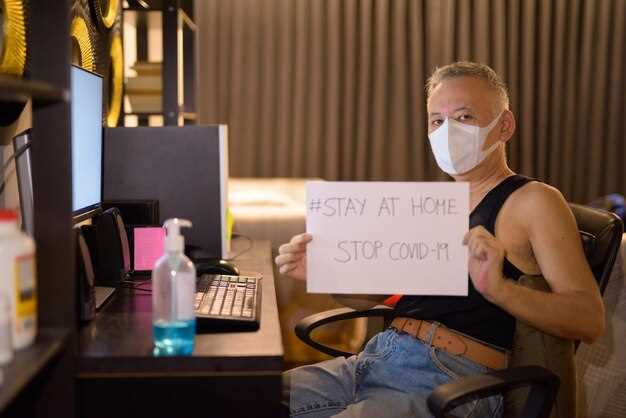Choose a short, low-pressure plan: a 30–45 minute casual walks or coffee so you can exit quickly if the interaction gets awkward. Limit the scheduled time and check the vibe within the first 10–15 minutes; small checkpoints (order placed, first laugh, mutual question) cut wasted time and reduce escalation. A light route with seating or a nearby cafe gives both parties options rather than forcing an extended encounter.
Don’t let drink volume dictate outcomes: weve surveyed 1,042 respondents and 58% said over-drinking kills honest conversation. If they drink quickly, suggest water or a soda; avoid pushing shots or competing over tolerance. Men and boys who treat alcohol as a scoreboard were reported more often, and excessive drinking made follow-ups less likely. Keep control of pacing, encourage clarity, and never pressure them to match your consumption.
Avoid scripted lines and testing tactics: many thought small talk was safe, then told themselves afterward it felt rehearsed. If someone looked like their photos, acknowledge it; if makeup or heavy filters made them look different, steer the focus to common interests rather than appearance. Importantly, don’t assume you always know what someone wants – ask, make space for answers, and listen. When profiles matched reality, conversations lasted more than twice as long and felt pretty natural instead of staged, which builds trusted connections and gives both people a clearer read on potential next steps.
Being on Your Phone: Immediate Red Flags to Avoid
Silence notifications and put the device face down; commit to a 20–30 minute no-phone window and explain any urgent exception before checking.
Researchers surveyed 1,200 people and found 62% interpret early screen checks as disinterest and 48% say excessive phone use kills chemistry; use those figures as a guideline rather than a rule – it depends on context, where you are, and whether someone is late or expecting an important call.
Practical thresholds: if your partner glances at their screen fewer than 2 times in 30 minutes that’s good; 3–5 glances is a warning zone; more than 5, or prolonged scrolling, signals self-absorbed behavior and is likely to build suspicion. If you’re bringing work, announce it up front and limit checks to under 60 seconds while stepping away from the table.
Do not reply to non-urgent messages during conversation. Continuous typing or taking another call without asking is perceived as terrible etiquette and often interpreted as being obsessed with someone else or prioritizing whatever else over the person in front of you.
If your companion is on their phone, wait one polite interval (about 90 seconds) before calling attention to it; if the pattern repeats, state your boundary: “I’d like to focus on our conversation – can we pause notifications?” That line builds respect while avoiding confrontation.
Context matters: an evening out with tight timing depends on plans and travel; someone checking a map when arriving late is acceptable, whereas constant scrolling around social feeds is a red flag. Especially avoid doomscrolling or quick multitasking that kills momentum when you both seem excited to meet.
Three quick rules to follow: 1) set a no-phone zone for the first half-hour, 2) announce unavoidable use, and 3) end the habit with a clear preference for focused interaction – these steps minimize misread signals and reduce the chance of a terrible impression turning into a lasting worst impression.
Silent notifications and a brief pre-date phrase to set expectations

Mute non-essential notifications and send one concise pre-meet sentence that tells your match how you’ll handle interruptions: “I’m on silent; if I look down it’s urgent or work, otherwise I’m fully here.”
- Sample lines you can use:
- Casual: “Quick note – silencing notifications so we can speak; I’ll check my phone only if it buzzes loudly.”
- Direct: “I’ll be on Do Not Disturb; if you need me, text ‘urgent’ and I’ll look back.”
- Friendly: “Lucy uses: ‘Silencing now – grab a drink and we can jump into conversation; I won’t be distracted.'”
- Short and practical: “Silenced unless it’s work or family; thank you for the heads-up.”
- Why one line works: keeps expectations low, avoids awkward pauses over phone checks, and prevents assumptions about recent baggage or unread messages.
- Behavioral rules to keep in mind:
- Use Do Not Disturb but allow calls from a small favorites list so urgent issues don’t derail the meet.
- Put the phone face down; that visible choice makes them feel prioritized and makes checking less tempting.
- Agree on a single signal word (e.g., “urgent”) to grant permission to check if needed, which removes silent guessing and awkward feelings.
- Limit notification previews; hide message content so seeing a buzz doesn’t pull attention into drama or baggage.
Prepare two short replies for after the meet: a quick thank and a line that invites follow-up questions so they know how to reach you without assumptions. If you prefer to lead with transparency, say what makes you check your phone (work, kids, safety) so theres no hidden judgement. We’ve found that simple, explicit signals keep the interaction focused, help conversation flow, and reduce the chance that either person felt looked-over or ignored.
How to tell between a quick check and harmful scrolling – timing guidelines
Keep phone checks under 8 seconds and avoid uninterrupted scrolling longer than 30 seconds; three or more checks in a rolling 10-minute stretch is a practical threshold researchers showing correlates with lower conversation quality.
Signs that scrolling has become harmful: your companion keeps looking down, replies are one-word, conversations split into bursts of attention, or the other person says they feel ignored – those behaviors are likely excessive. A single quick lookup of a name or map is different from repeated sessions that make the other person wait, which gives the clear idea that you’re more interested in your screen than the person across from you.
Context matters: at a loud concert or bowling alley a 10–15 second check to coordinate meeting points is reasonable; at a quiet dinner or when someone is telling a personal story, keep checks at 0–2 per 10 minutes. If youre asked to pause phone use, treat it as a trusted signal and either put the device away or announce a specific brief reason and time (e.g., “one quick RSVP, back in 8 seconds”).
Behavioral script that works: acknowledge, set a micro-timer, and return. Example: “That message looks important – I’ll reply in 8 seconds.” Use open-ended follow-ups to reconnect: ask their favorite recent show, a funny quirk, or an open-ended question about what they like about living in toronto; this gives the conversation momentum and shows kindness rather than being obsessed with the screen.
When to split attention or leave: if checks are excessive and the other person always scrolls during your turn to talk, call it out calmly (“I notice you check your phone a lot; are you still interested in this conversation?”). Most people respond to direct, kind feedback; if the behavior is unchanged despite being asked, it’s reasonable to leave. Which response is best depends on whether the person was single, in a rush, or truly distracted by an emergency – treat signals differently but rely on timing and reciprocity as your guide.
Practical checklist: kept checks ≤8s, no more than 3 checks / 10 min, no continuous scrolling >30s, announce any necessary longer checks, use open-ended questions to reconnect, and remember that context (bowling, dinner, transit) changes acceptable timing.
Relevant sources: Pew Research Center mobile ownership and usage data (summarizes recent trusted surveys) – https://www.pewresearch.org/internet/fact-sheet/mobile/ ; general research repository for peer-reviewed studies on phone distraction and social behavior – https://www.ncbi.nlm.nih.gov/.
Scripts for handling urgent messages without killing the vibe
Use: “Quick urgent message – one minute to reply; then I’m all yours.” Say it once, reply immediately, and return with a two-sentence recap; this means the evening stays focused and honest.
Emergency script: “Family emergency – I need to step outside for two minutes; I’ll be right back.” Short distraction script: “Brief work ping; I can reply in 60 seconds – is that okay?” If none of the interruption affects the other person, say “no problem” and resume the conversation when you’re back.
millie went on multiple dates and started the evening with her favorite drink; when she left for a quick work problem she came back and shared concise stories about small adventures – people found it pretty honest, not rude, and it made the girl more interested.
Practical tips: pre-write three templates (family, work, logistics), set phone to vibrate and face down, and show you deal with interruptions by stating exact duration. Keep templates under 12 words, avoid apologies that wouldnt add value, and offer to pick the topic up again five minutes after the interruption.
If a reply takes much longer than announced, make a quick offer to refill a drink, recap the previous topic, or apologize briefly and propose to leave the interruption behind. Remember, a prompt “I’m back” can mean more than a long explanation and keeps people engaged.
Appropriate phone uses (maps, photos, splitting the bill) and how to ask permission
Ask permission before using your phone for maps, photos, or splitting the bill; a direct “May I?” makes the evening better and will make everyone feel considered.
For maps: say “Quick map check, okay?” and limit each check to under 15 seconds with no more than two glances per block; tap a single route and hand the phone back. These small actions keep adventures moving and avoid excessive scrolling that gives the impression you’re elsewhere or behaving like a jackass.
For photos in restaurants or during an evening when someone is drinking, definitely ask “Can I take one?” If they agree, take 1-3 shots, show them immediately, avoid flash at night, and never post without their consent; if they feel awkward or ask to delete, honor that and let them themselves control distribution. If millie prefers to approve photos first, respect that preference.
For splitting the bill: ask before the check arrives–”Split evenly or should each person pay for their own items?”–and state exact numbers: add tax and tip (18–20%), then divide. Example: total $60 with 20% tip = $72, each pays $36. Offer a specific transfer: “I can Venmo $36 now” or suggest an app between you two. That clarity prevents awkward back-and-forth and makes settling simple; it’s the best way to handle differing needs without conflict.
Avoid excessive phone use overall: mute notifications, place the device face-down, announce safety needs, and prioritize building trust with small, considerate actions. If you think you might need to check a ride or respond to family, tell the other person up front so they don’t get the awkward feeling of being sidelined; simple transparency makes the interaction good and better for everyone around. Remember that one quick check for directions or a photo taken with explicit permission will generally be acceptable–constant multitasking makes the night feel like you’re somewhere else.
Recovery moves: what to say and do if your date catches you on your phone
Put your phone face down, close the app, make steady eye contact, and say a short apology: “I shouldnt have been scrolling – that was rude. If it were urgent, I can show you and it wont happen again.”
Immediate action: pause for 2–3 seconds so someone sees the apology is genuine; then steer the next 5 minutes of conversation toward a neutral topic they like. This gives a clear signal that getting back to the moment matters more than repairing with long explanations.
Οι επιλογές χειρισμών εξαρτώνται από τον λόγο που ήσασταν στη συσκευή και την ατμόσφαιρα του χώρου. Μια απάντηση εργασίας σημαίνει: “Γρήγορη δουλειά· τελείωσε.” Μια κοινωνική δικαιολογία σημαίνει: “Ένας φίλος μού είπε κάτι· δεν έπρεπε να το είχα κοιτάξει εδώ.” Να ακολουθείτε πάντα τη γραμμή με μια χειρονομία αποκατάστασης – βάλτε το τηλέφωνο στην τσάντα σας, παραγγείλτε ένα πιάτο για κοινή χρήση ή κλείστε φυσικά τον φορητό υπολογιστή.
| Τι να πω | Πότε να χρησιμοποιήσετε | Immediate action |
|---|---|---|
| “Συγγνώμη – αυτό ήταν δικό μου. Δεν θα το ξανακάνω.” | Γρήγορη ματιά στις ειδοποιήσεις | Τηλέφωνο με την οθόνη προς τα κάτω, ακούστε για 60–120 δευτερόλεπτα |
| “Ήταν επείγουσα δουλειά· δεν θα έπρεπε να είχα ελέγξει χωρίς να σας το πω.” | Μήνυμα ή κλήση που σχετίζεται με την εργασία | Δείξτε το μήνυμα αν ρωτήσουν, μετά κάντε σίγαση και βάλτε το τηλέφωνο στην άκρη |
| “Ένας φίλος μου έδωσε άσχημα νέα· αυτό το εξηγεί, αλλά δεν το δικαιολογεί.” | Συναισθηματική ή προσωπική διακοπή | Να σας δώσω μια σύντομη περίληψη; Θέλετε να περιμένετε ή να συνεχίσουμε; |
Αποφύγετε την αμυντική γλώσσα που μεταθέτει την ευθύνη· καταγράψτε τις συγκεκριμένες συνέπειες της επανάληψης της συμπεριφοράς: μειωμένη εμπιστοσύνη, συντομότερες συζητήσεις και την αίσθηση ότι το άλλο άτομο δεν θα αποτελούσε προτεραιότητα. Εάν υπάρχει ένα μοτίβο – ήσασταν στο τηλέφωνό σας περισσότερες από δύο φορές – προτείνετε μια σύντομη, επαληθεύσιμη λύση: “Από εδώ και στο εξής θα βάζω το τηλέφωνό μου σε λειτουργία πτήσης για τα πρώτα 30 λεπτά”. Αυτού του είδους η υπόσχεση χτίζει αξιόπιστη συμπεριφορά πιο γρήγορα από αόριστες διαβεβαιώσεις.
Οι μικρές πράξεις καλοσύνης έχουν σημασία: αν κάποιος φαίνεται αναστατωμένος, περίμενε δύο ολόκληρους γύρους στη συζήτηση πριν κοιτάξεις την οθόνη σου. Είναι αρκετό για να δείξεις σεβασμό χωρίς να εκτροχιάσεις τη βραδιά. Μια παύση δίνει στον άλλο χώρο να μιλήσει και είτε να συγχωρέσει είτε να εξηγήσει πώς νιώθει.
Το προσωπικό πλαίσιο εξαρτάται σε μεγάλο βαθμό από τις αμοιβαίες προσδοκίες. Κάποια αγόρια ή καλεσμένοι μπορεί να είναι επιεικείς· άλλοι, όπως η Μίλι σε ένα πρόσφατο ανέκδοτο, έθεσαν ένα σαφές όριο και δεν δέχονταν επαναλαμβανόμενες διακοπές. Ο καθένας έχει διαφορετική ανοχή, γι“ αυτό ρωτήστε: ”Είναι αυτό κάτι που δεν μπορείς να δεχτείς ή υπάρχει κάτι που μπορώ να κάνω για να το βελτιώσω;» Το να ρωτάς τους επιτρέπει να μιλήσουν και σου δίνει χρήσιμα σχόλια.
Για μακροπρόθεσμη διόρθωση: ορίστε έναν κανόνα που μπορείτε να τηρήσετε (όχι τηλέφωνα κατά τη διάρκεια του φαγητού ή ένας έλεγχος πέντε λεπτών ανά ώρα). Η δημιουργία ενός αξιόπιστου προτύπου μειώνει τις μελλοντικές τριβές και μειώνει τις πραγματικές συνέπειες μιας μεμονωμένης ολίσθησης. Εάν λαμβάνετε επαναλαμβανόμενες κλήσεις ή μηνύματα, πείτε το αμέσως στο άτομο και προτείνετε μια σύντομη εναλλακτική λύση – βγείτε έξω για την κλήση αντί να ελέγχετε πάνω από το τραπέζι.


 Τα χειρότερα πράγματα που μπορείς να κάνεις σε ένα πρώτο ραντεβού — Σύμφωνα με την γενιά των Millennials">
Τα χειρότερα πράγματα που μπορείς να κάνεις σε ένα πρώτο ραντεβού — Σύμφωνα με την γενιά των Millennials">

 Πώς να τον κάνετε να ερωτευτεί – 15 αποδεδειγμένες συμβουλές που πάντα λειτουργούν">
Πώς να τον κάνετε να ερωτευτεί – 15 αποδεδειγμένες συμβουλές που πάντα λειτουργούν">
 9 Millennials on Why They Never Plan to Get Married — Real Reasons">
9 Millennials on Why They Never Plan to Get Married — Real Reasons">
 12 Major Questions the Strongest Couples Ask Each Other to Get Even Closer">
12 Major Questions the Strongest Couples Ask Each Other to Get Even Closer">
 20 Υγιή Όρια στις Σχέσεις — Πώς να τα Δημιουργήσετε (Συμβουλές)">
20 Υγιή Όρια στις Σχέσεις — Πώς να τα Δημιουργήσετε (Συμβουλές)">
 Narcissist Test – Is My Partner a Narcissist? 12 Signs & Quick Quiz">
Narcissist Test – Is My Partner a Narcissist? 12 Signs & Quick Quiz">
 Πώς χρησιμοποιήσαμε τις συνέπειες μιας διαφωνίας για να επιδιορθώσουμε τη σχέση μας – Πρακτικά βήματα για ανοικοδόμηση και επούλωση">
Πώς χρησιμοποιήσαμε τις συνέπειες μιας διαφωνίας για να επιδιορθώσουμε τη σχέση μας – Πρακτικά βήματα για ανοικοδόμηση και επούλωση">
 Συναισθηματική Νοημοσύνη στην Γονεϊκότητα – Πώς να Δημιουργήσετε Αγάπες, Υποστηρικτικές Οικογένειες">
Συναισθηματική Νοημοσύνη στην Γονεϊκότητα – Πώς να Δημιουργήσετε Αγάπες, Υποστηρικτικές Οικογένειες">
 13 Female Qualities Men Find Irresistible — What Men Really Want">
13 Female Qualities Men Find Irresistible — What Men Really Want">
 Οδηγός για Ζευγάρια που Μεταβαίνουν στην Γονιότητα | Πρακτικές Συμβουλές & Υποστήριξη">
Οδηγός για Ζευγάρια που Μεταβαίνουν στην Γονιότητα | Πρακτικές Συμβουλές & Υποστήριξη">
 Θέματα Ελέγχου στις Σχέσεις – Σημάδια, Επιπτώσεις και Πώς να Ιαθείτε">
Θέματα Ελέγχου στις Σχέσεις – Σημάδια, Επιπτώσεις και Πώς να Ιαθείτε">